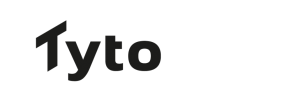Posts

Decoding the DNA of tech influencers: What sets them apart?
“Gen Z wants to ditch the corporate job to become an influencer,”…

Breaking down barriers: The rise of women in European Tech
The lack of women in technology is not an easy problem to solve.…

Tech 500: Cybersecurity gains prominence in 2022, ConsumerTech and EdTech lose it
The current climate of insecurity and uncertainty, including…

Moving the industry forward: the role of technology innovators
"Necessity is the mother of invention" and going on the findings…

Tech 500: The role of Academia and institutional stakeholders in uncertain times
The global situation as we know it has changed considerably in…

Tyto launches 2022 Tyto Tech 500 influencer report
In 2017, we launched the Tyto Tech 500 as a way to identify the…
